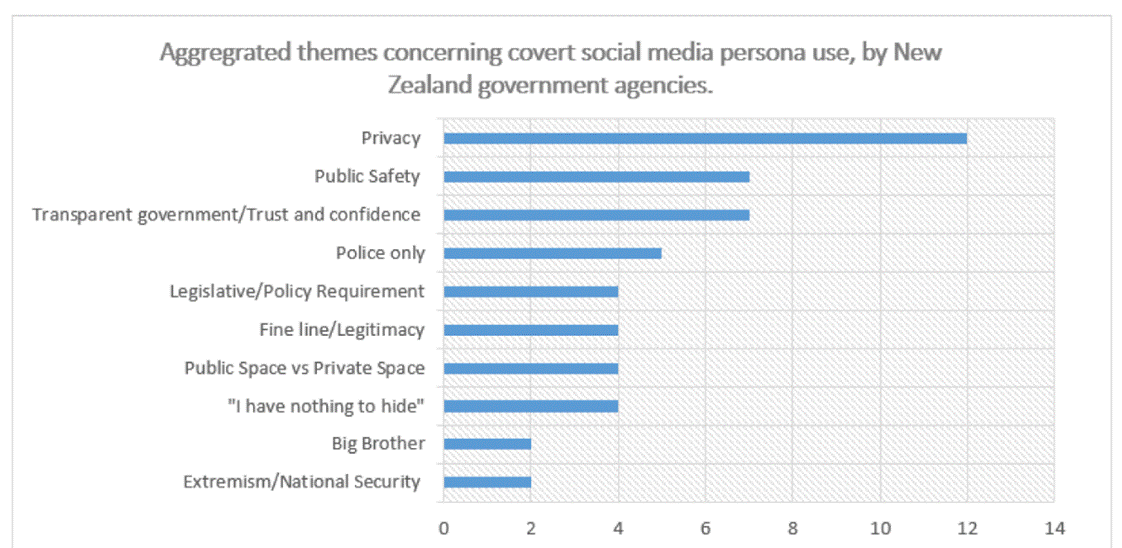Authors: Cleaver, O. & Nicklin, G.
Published in National Security Journal, 12 June 2020
Overall, the comments revealed that respondents expect government agencies to ensure the regulatory requirements of their agency are met and that they are obliged to do so. This expectation is interpreted to mean the state has a duty of care to ensure citizens’ safety. If this is the case, the expectation of a duty of care further reinforces the social licence for the use of SOCMINT as a necessary function to ensure the care and safety of the community. The aggregated themes are represented in Figure 2 below.
Figure 2: Themes from survey comments

Number of comments on each theme
The theme analysis suggests the public will perceive the use of false social media personas by government agencies in a positive light if used for regulatory and enforcement purposes. In other words, the study established there is a social licence for government use of false social media personas. A social licence incorporates practices and actions that are not only legally and ethically responsible, but that also meet society’s demands.35 A social licence can reflect the meaningful partnerships between operations, activities, communities, and governments.36 These partnerships are important for ensuring collective benefits, providing safe communities and ethical government practices. In the case of this research, the social licence reflects community acceptance of SOCMINT, and demonstrates a first layer of understanding of public expectations of covert social media use.
